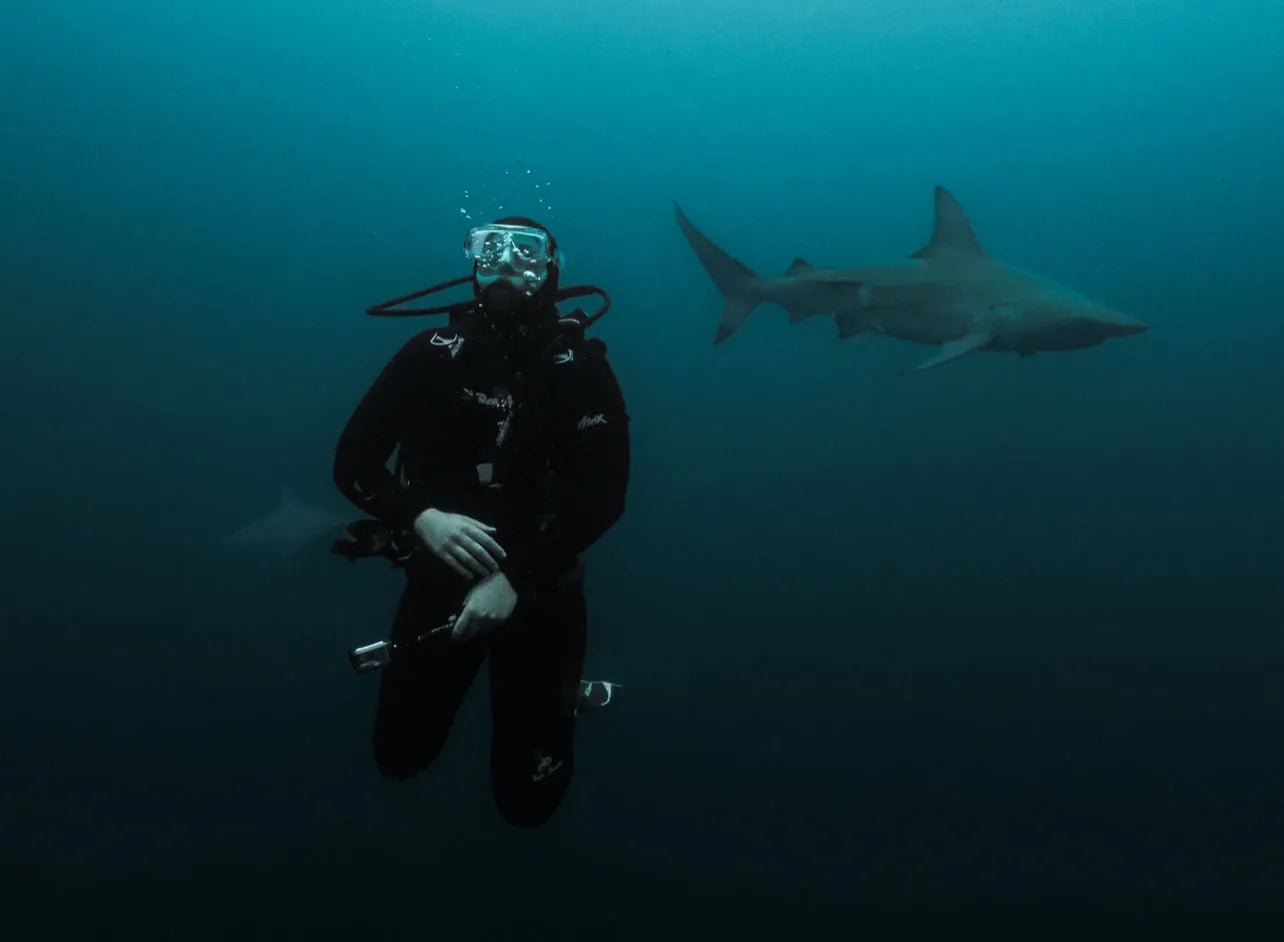Marine biology has always captivated those drawn to the mysteries of the ocean, and few areas within this field are as fascinating as the study of sharks. These apex predators play a critical role in maintaining the health and balance of marine ecosystems, yet they face numerous threats from human activities. In this interview with Cicely Nagel, we delve into the experiences and insights of a marine biologist whose lifelong passion for the sea and its inhabitants has led to a career focused on shark research and conservation. From early inspirations to future aspirations, this interview highlights the journey, challenges, and triumphs of a scientist committed to understanding and preserving one of the ocean's most misunderstood and vital species.
What inspired you to pursue a career in marine biology, and study sharks in particular?
I have been very lucky to have lived close to the sea my entire life. Growing up, my dad (who lived on a ship for most of his life), would take me snorkelling every weekend, teaching me about the underwater world and sparking my interest in the ocean. After every snorkel, I would go home and research all the animals I found.Whilst researching, I came across sharks and I just fell in love. Their beauty, power and role in the marine ecosystem fascinated me. Unfortunately, there aren’t any sharks around the coast of Cyprus. Since I couldn’t observe them in their natural habitat close to home, I dived into learning everything I could about them in books, documentaries and online. With every new piece of information I learned, my passion for sharks grew deeper. This led me to study marine biology at university and pursue a career as a marine researcher.
Can you describe some of the most interesting research projects you have worked on?
For my MSc, I worked on shark visual ecology and was very lucky to spend most of my days underwater with sharks, analysing their behaviour. This involved studying how shark perceive their environment, which I found very interesting. I have also helped out with some genetic projects which looked at the population distribution of a few shark species. As much as I love fieldwork, I also really enjoy lab work and working on DNA extraction so that was also really interesting!
Can you describe your most memorable moment/experience at work so far?
One of the most unforgettable experiences was diving with sharks for the first time after moving to South Africa for my MSc. Surrounded by over 20 oceanic blacktip sharks, I was struck by their beauty and curiosity. It was a profound moment that I had waited for my entire life. I came back to land after that dive inspired and motivated, and it reinforced my commitment to shark conservation. Now, I have done around 100 shark dives for my research, but the novelty never seems to wear off!
Can you explain the role of sharks in marine ecosystems and why they are important for the health of our oceans?
Sharks are apex predators in the ocean and keep the balance in the ocean. They have a top-down effect, which means that they help regulate the populations of species below them in the food chain. In turn, this prevents the overgrazing of critical habitats such as seagrass beds, which supports biodiversity and leads to a healthy ocean. They also remove the weak and sick, as well as keeping the balance which helps maintain species diversity.
What are the most pressing threats facing shark populations today?
Overfishing (both bycatch and purposeful fishing for sharks) is the biggest threat to sharks, and 100% of threatened shark species are impacted by this. Additionally, overfishing is the only threat to 67% of shark and ray species. This exploitation results in significant declines in shark populations, which disrupts the whole marine ecosystem.
How do human activities impact marine life, and what can be done to mitigate these effects?
Humans impact marine life in many ways, through pollution, overfishing, habitat loss and climate change. 12 million tonnes of plastic enter the ocean every single year.This, along with chemical and noise pollution, has a detrimental impact on the ocean and the life in it. Overfishing has caused the exploitation of nearly 90% of the global fish stocks. Climate change, due to the excessive amounts of greenhouse gases released by humans, has led to issues such as coral bleaching, ocean warming and has caused a change in marine species distribution. These all disrupt the marine ecosystem and threaten the survival of marine life. However, it is not too late to turn this around! Some ways we can help save the ocean include reducing our fish consumption (or shopping for sustainably sourced fish), reducing plastic use, burning less fossil fuels, attending beach cleans and advocating for our oceans and the marine life in them!
What are your future research goals, and what questions do you hope to answer?
I would love to continue working as a researcher and potentially, do a PhD. There are so many unanswered questions about sharks that I would love to answer. I have a special interest in how sharks perceive the world and I would love to delve into that a bit more, and potentially try and answer questions such as looking more in-depth at sharks’ sensory capabilities, their social interactions and their adaptations.
Find Out More
The dedication and curiosity of researchers in this field inspire hope and action towards a sustainable future for our oceans. As threats to marine life continue to escalate, the insights and endeavours of marine biologists like Cicely are crucial in building a greater understanding and respect for the natural world, encouraging us all to contribute to the preservation of our planet's invaluable marine biodiversity.


Come and join us!
Join us every Saturday at 10am at the Fittie end of Aberdeen beach for invigorating dips in the sea. The refreshing waters will not only revitalize your body but also uplift your spirits, offering a perfect blend of mental clarity and physical well-being.
For updates on volunteering at beach cleans, joining adventure days, and other upcoming events please see our social media pages.
The ultimate guide to unlocking the full potential of one of nature's most powerful resources.
Cold water has been used for centuries as a natural remedy to promote health, vitality, and well-being, and its benefits are backed by science.
Whether you're a seasoned cold water enthusiast or just starting out, this comprehensive guide will provide you with all the information you need to harness the power of cold water and take your health and wellness to the next level.











Life on the Waves: The Surfer’s Guide to Beach Changing Robes
Suspended in Art: Balancing Strength and Grace